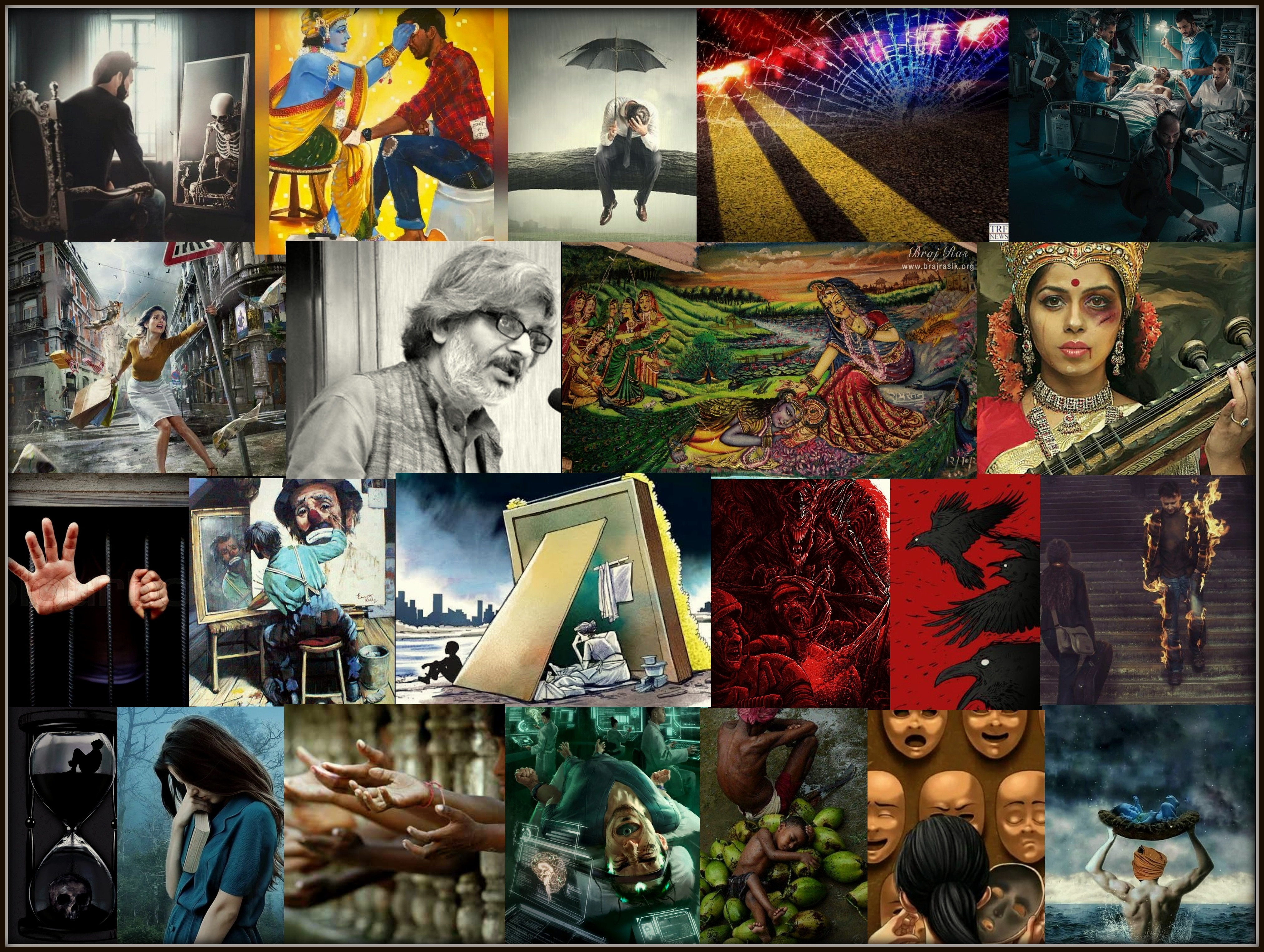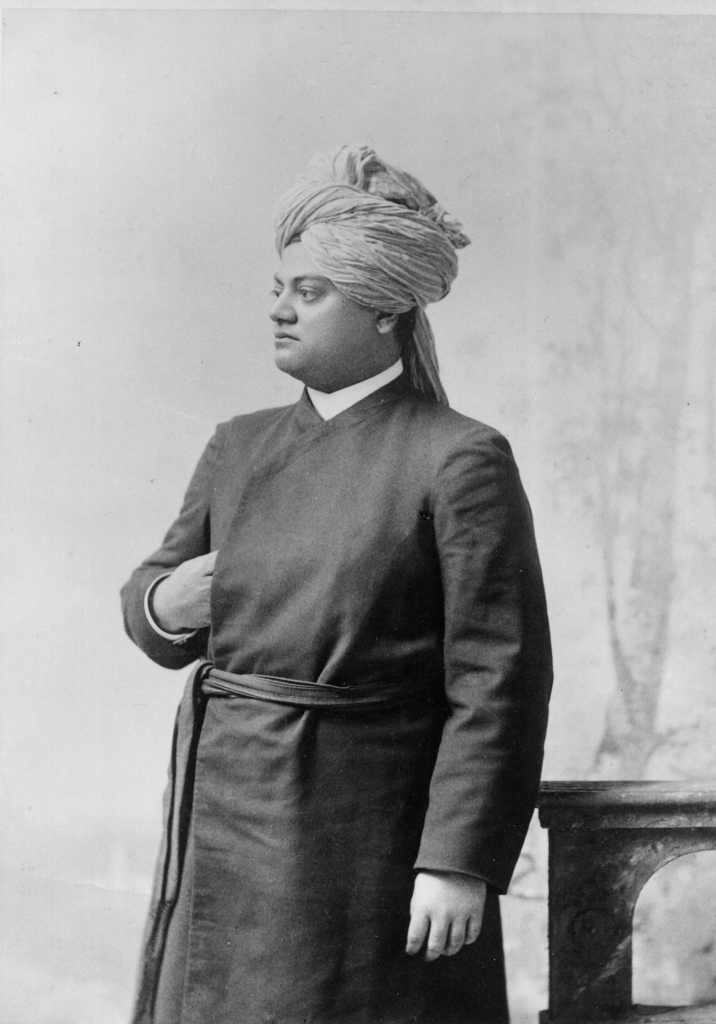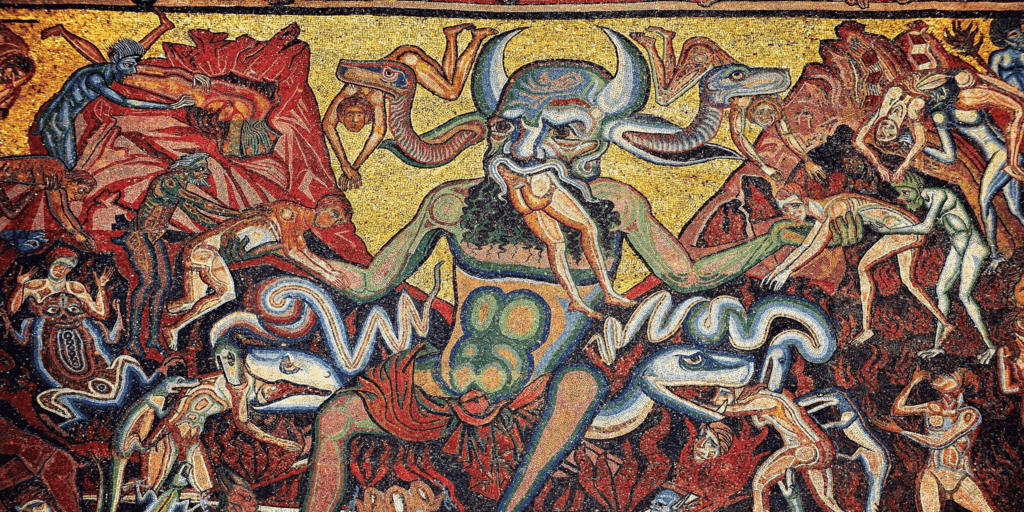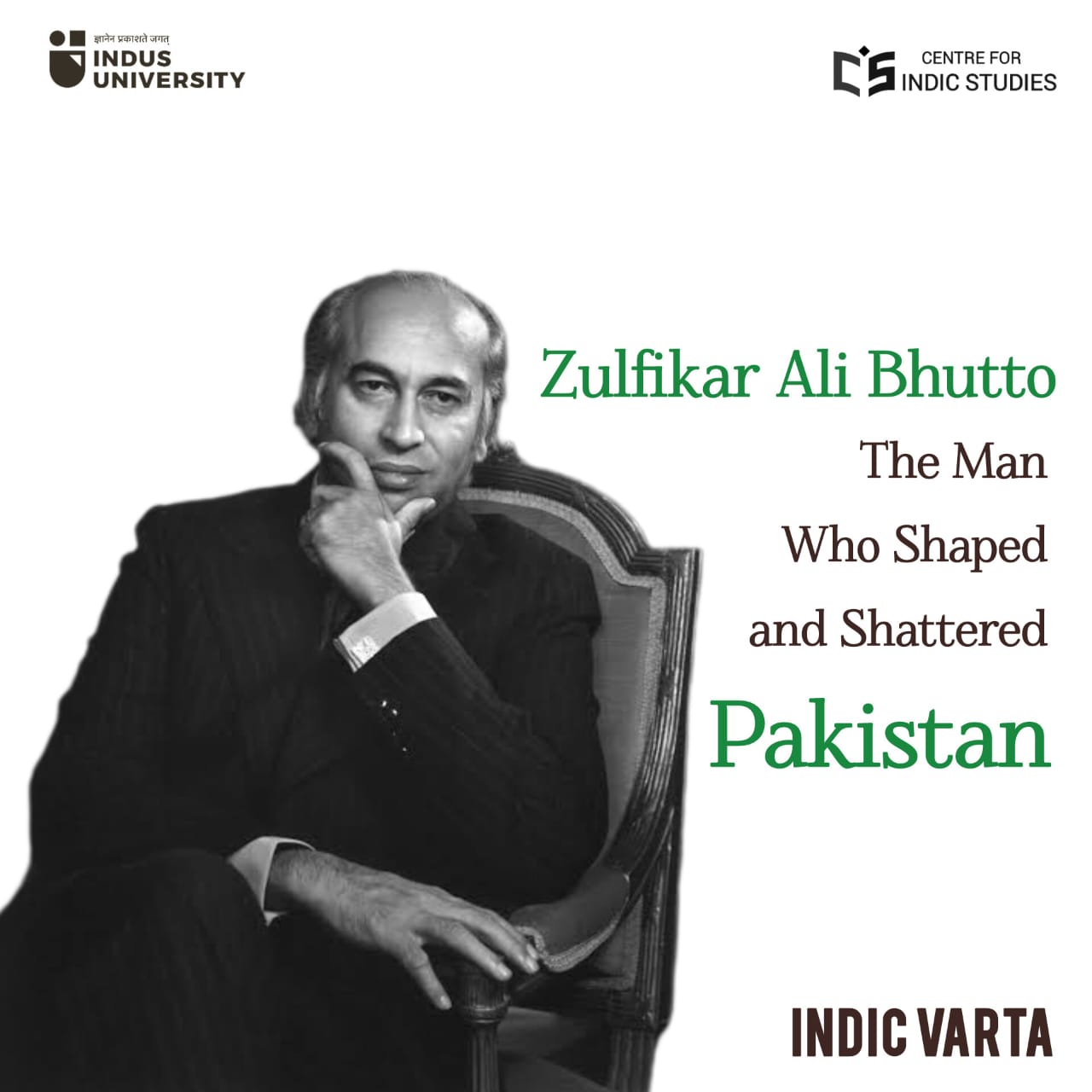- Visitor:23
- Published on:
Is God in Pain? (Part-2)
“The God has luckily survived from my hands, who took away Goodwin from us untimely- as I don’t believe in Him. I have still doubt about Him. If I could be sure about His existence, I would have already slain that God” Kill the God– This is what Swamiji planned just because Goodwin has died. Was this an ignorance and arrogance of Swamiji? It shows how much love he had gathered and preserved in his heart.

The following content is translated from the lecture given by Sri Arindam Chakrabarti in Bengali. Arindam Chakrabarti is, currently, a visiting professor of philosophy at Ashoka University, India. He is, also, a professor of philosophy at Stony Brook University, where he has been since 2018. Prior to moving to Stony Brook, Chakrabarti taught at the University of Hawaii, where he was the director of the EPOCH Project (Eastern Philosophy of Consciousness and the Humanities). The original lecture was given at the event on the memoery of birth anniversary of Professor. Katyayani Das Battacharya arranged at the Ramakrishna Mission Institute of Culture, Kolkata, 13th July, 2017. Being one of his admirers, the lecture is published in this article format with the intention to spread his voice more for our readers.
…continued from the last part.
The image of this kind of individual sorrow is available in plenty from the world literature and real-life scenarios. In personal life, any sympathetic human being- the more they are emotional, the more they look at the intensity of another’s sorrow, suppressing their own deep inside. Again, people who have less emotion than them but still have pain in life, in their self-ego proclaim, “Maybe others are suffering also, but pity me, no other’s hardship can match my trauma”.

In Pride in Illness, Bertrand Russell mentions two types of mothers. Both of them suffer from “pride in illness”. While taking their children to school, the first category of mothers claims, “How much does your child suffer? If you could know the sickness of my child, you would realize that your baby’s illness is just nothing in front of my kid”. Thus, they satisfy the ego of their own self and feel pride through the case of illness of their child. The second group of mothers comes from this first category, but as they return home, they become more interesting. At home, they give their child a mouthful saying, “How much do you suffer my baby? If you could know my sickness, you would have realized that your illness is just nothing in front of mine”
This sort of competition of suffering and unable to withhold, expressing that to others somehow remains, at least a little, deep inside all of our “raised consciousness”. There is a reason behind it. We hear and pay attention to others’ sufferings from words coming from the other end and react through our expressions- like making Ah or Uh sounds from our mouths or knitting our brow or shedding tears. But still, it cannot be denied that we never experience or undergo other’s conditions. At most, we can just go through and realize our own sufferings. Therefore, in understanding and comparing the intensity level of suffering, human beings remain bound within their own inner selves. And, as they gradually grow older, in due course, they gather and store at least a few complaints within that remain hidden and just end up mourning within- “No one has ever exactly known or tried to understand my sorrow!”
Those who are unable to escape suffering through the mercy of God of Bhakti Marga or by a miracle touch of any spiritual master… or thinking through reasoning in Buddhist/ Samkhya path that- I have no atman/soul, so there is no “me”, so who will suffer? There is nothing called “mine” and no one is suffering- for them the speaker mentions a modern technique. Here, the best way is to look around and observe everything around us. If slight sympathetic attention can be given to others’ pains, then one hope is there that at least with shame, we will be in new pain about our own pain while watching others’ pain. We will think, “How could I have been lamenting and taking pride in my own suffering? Compared to the others, where do I stand?”

Here, Arindam Chakrabarti makes a pause and tells us from where the current topic of discussion came into his mind. The present event was arranged in memory of Professor. Katyayani Das, who was close to his father. During his last days of suffering from cancer, his father was in a turmoil situation for his treatment. This incidence of suffering with health was in memory and meanwhile, a book by Slavoj Žižek, a Slovenian philosopher came to the speaker’s hand. Though the author sometimes writes well and sometimes is found blithering, as per Arindam Chakrabarti, but one chapter of the book titled “Only a Suffering God Can Save Us” was interesting and drew his attention. In the beginning, Žižek beautifully presented some problems with Christianity and Western philosophies. To them, God is all-powerful, wants nothing but His creation’s welfare and can do anything He wishes. But our well-being lies in lessening our pain. And, the level of our pain is not diminishing. This is the concern. It is also called the “Problem of Evil”. In response to this challenge, Zizek has presented 3 solutions dividing the whole history into 3 categories. It has some similarities with Indian philosophy also in some places.

The first solution is that- What will God do? Humans are suffering due to their own sins and wrongdoings (Karma phal). Now, those who never do anything wrong but believe in nothing but scientific causality, reject all ideas of Karmavad, theism, God, etc waving the flag of materialism, but eventually fall under sudden extreme problematic situations, they also ask- “Why me? I have not done anything wrong.”
This is strange as these people do not believe in such Karma phal but still express their feeling by pointing their finger towards Karmic theory, asking– “what have I done wrong?” A pure atheist should not ask this question. But this question is beyond the boundary of atheism and theism. The reason is this. Those who are a little wicked and naughty, expect that anything minor issue can arise in their life, they can ignore by saying, “I don’t care”. But those who are righteous and know that- “I always speak the truth… I don’t take bribe… I have not harmed anyone even not through words… sometimes may have said others that- look I am more honest than you, but still did not hurt anybody…”– as they face any unexpected mishap they start complaining, “Why this happened to me only? It could have happened to others. I would not have bothered”. Though they do not believe in any divine intervention of Karmik activities, but such type of questions comes from the inner heart and intellect. This is to be analyzed. The case can also be related to those who- might be possessing extreme knowledge and a thinking mind, are also found to be sad and agitated, with all the affection still present inside, if anyone most loving and dearest to them suddenly expires.

Once, when Sister Nivedita was in Almora, Swami Vivekananda was engaged in giving lectures that time. Today, we can read Swamiji’s lectures thankfully due to a stenographer Josiah John Goodwin, who used to record them. Meanwhile, Sister got a telegram that Goodwin is no more. In fear, she could not inform the news to Swamiji, since he was very close to him. As she disclosed it a day after, the words from the very first reaction of Swamiji was, “People come and go, leaves the body, what is new? Goodwin is still with me here”. The lecturer reminds us that Swamiji could have never reacted in such a way without any realization, as he was not anyone who just speaks by reading books only. As per Arindam Chakrabarti’s guru’s words– Swamiji never viewed Kashi on a map; rather he actually visited Kashi in reality. Thus, Swamiji behaved with a “don’t care” attitude that day.

Now, on the very next day, while taking class, he turned ballistic saying, “The God has luckily survived from my hands, who took away Goodwin from us untimely- as I don’t believe in Him. I still have doubt about Him. If I could be sure about His existence, I would have already slain that God”
Kill the God– This is what Swamiji planned just because Goodwin has died.
Was this an ignorance and arrogance of Swamiji? It shows how much love he had gathered and preserved in his heart.
So, there is another side to the truth that living life only means suffering. That is from where the popular quote- “someone overcomes all misery through utmost knowledge”, has come out. But, beyond that, if someone crosses that boundary of knowledge also, then every other creature’s pain will also touch him. This is his Godliness. This is his holy knowledge.
Now, let us come to the solution to the second problem of evil. Here, Zizek states-“ No! By giving miseries, God is purifying us”. This is quite Rabindrik or similar to Rabindranath’s aesthetic style.
Moreover, people who acknowledge the third solution to the problem of evil answer, “Look it is our limitation and ignorance. We actually do not know the answer. There must be definitely some purpouse. Here lies God’s one of His great qualities. That is why He is incomprehensible”. Exactly this is how the Book of Job approached the issue.

Taking these solutions in hand, somehow some of our quests are cleared and calmed. But can we reconcile this with the way- how Hitler did that mass genocide of so many innocents? Uprooting the golden teeth of some people and using that money from gold for war, killing people in front of their kids… can we justify all these as a childish or divine play of God (what we call Lila in Indic terms)? At least, Zizek did not agree.
Now, add all the sorrows of creatures– including the pain of the holocaust, misery due to partition and riot and even the everyday hard-hearted image that we see in markets- how the chickens are put in one cage packed together beside one another where hundreds of fouls are forcefully inserted in the place of one, pricking each other… and all the sorrows we know and possibly imagine….
Are these punishments for our sins, or just purifying us through pains or the unknown and not understandable hard aspect of God or just play of God?

If you claim all these possibilities, then Pragyakar Gupta, the author of Vartik Alankar Bhashya on Praman Vartik Of Acharya Dharma Kirti, would comment- “For the sake of just one’s satisfaction/decision, so many lives are ruined every day. Is this acceptable? What type of God is He?”
So, Zizek concludes that His hands must be tied together. He does not have infinite powers. This is the last possibility. Indians also somehow can agree with this. God is bound by Karmik laws that He himself has created. He rewards as per Karma phal or result of the previous action. Might be He is committed to His own rules. Probably, his nature is like those who have written our constitution. They cannot break their own rules. Similarly, God is bound and limited by His own principles. But, does this make him all-powerful?

Another concept from Christianity, which is not found in Indic ideas, is the power of Devil/Satan. Everything that is not going right and indulges suffering comes from Devil, whereas God is only responsible for what is happening good and beautiful.
However, when we look more into reality today, the more we see the high extremism of violence and aggression increasing in people’s minds- whether that may be in the form of technologies to destroy or finding new ways to torture others, or promise in the name of giving freedom or taking revenge on others or spreading and implanting own supremacy.
Does it seem that any of the Gods discussed above can help us, at least in today’s age of science and rationality?
If not, then, which God can be useful for us now?
to be continued…
Center for Indic Studies is now on Telegram. For regular updates on Indic Varta, Indic Talks and Indic Courses at CIS, please subscribe to our telegram channel !
Sources of main lecture:
- https://www.youtube.com/watch?v=XhXjXJjouWg
- https://www.youtube.com/watch?v=wjBxjJJ0A30
- 11 min read
- 0
- 0










